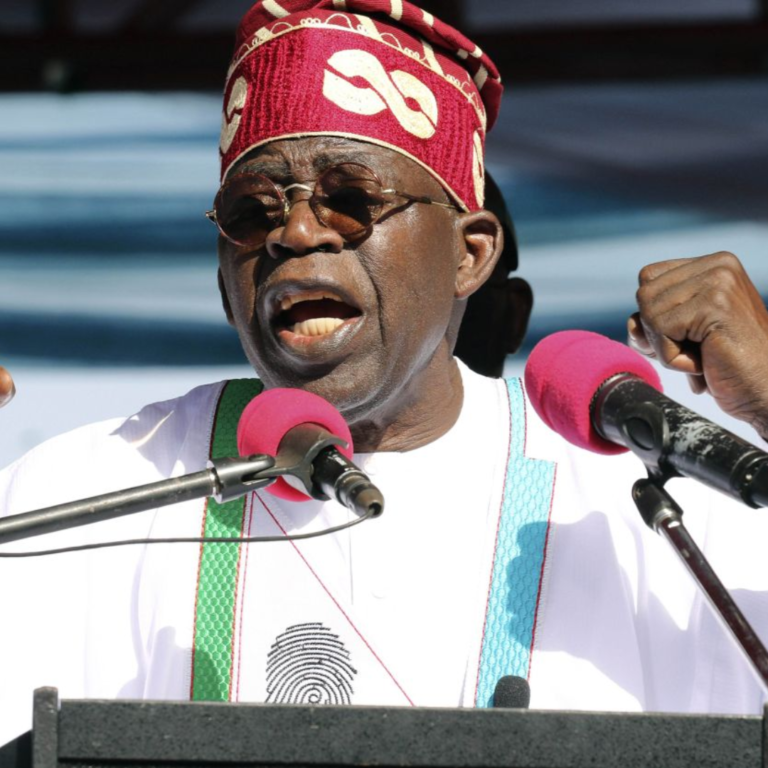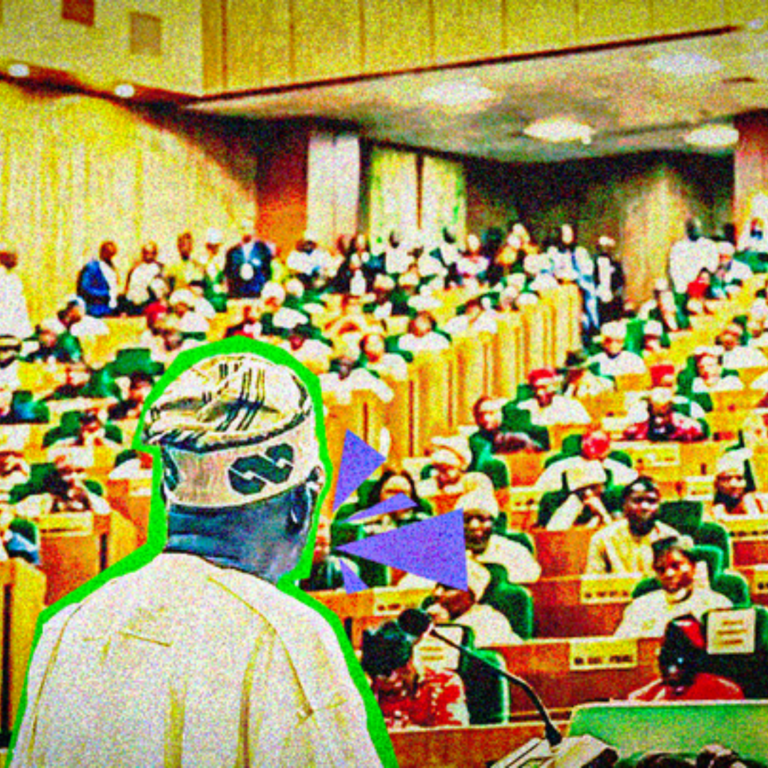In a lot of ways, 2024 was a hell of a year for Nigerians; from fuel scarcity and hikes in fuel prices to sky-high inflation, poor power supply, and crazy exchange rates, people living in Nigeria braved so much to survive.
Micro, Medium, and Small Enterprises (MSMEs) were no different. Like every other year, 2024 came with its ups and downs, but the lows were so severe that their impact was felt nationwide. From the Manufacturing Association of Nigeria (MAN) announcing that unsold products worth about ₦1.24 trillion were stuck in different warehouses across the country (just by the first half of the year) due to the inability of their owners to sell them, to the Bank Of Industry (BOI) stating that MSMEs in Nigeria need about $160 billion bailout funds, the country didn’t exactly prove itself as a good business environment.
As the year comes to an end today, Zikoko Citizen spoke to three young micro business owners to understand how the Nigerian economy affected their businesses in 2024 and what they look forward to in the coming year.
Chisom, 27– Fashion Designer, Abuja.
I don’t want to sound cliche, but doing business in Nigeria this year was hard. I consider this one of the most difficult times to be a young adult in Nigeria. The economy and everything is just so difficult. The cost of living is high, and the cost of doing business is even higher.
The crazy thing is that because customers struggled, they didn’t understand that business owners had it difficult as well. It’s even worse with my kind of business because some people feel like you just want to overcharge them or think you are overpriced.
You might just tell a customer the price for something this minute, then go to the market the next minute to buy that same thing, only to find out that the price is way higher than what you’ve already charged. Only a few people understand when you come back to them to say you’d need to increase the initial price you told them. I’ll give you an example– one time within the year, a bundle of lining was about ₦9000 to ₦1000. A few weeks after I bought some, I felt like the prices of sewing accessories might go up, so I went to the market to restock, but I was super shocked to find that it had increased to ₦35K and the sellers at the market were not even begging or haggling price. The energy they gave was like, “If you’re not buying, go.”
Navigating price increments and incorporating them into my business was not easy for me this year, and I don’t think it was easy for others, either. It came to a point where I needed to charge more to sustain my business. A lot of things came into play and I had to consider all those factors to be able to charge appropriately for my brand, so you have to accept the reality that not everybody who could afford me before will be able to afford me presently and just be fine with it.
People who appreciate the services you offer enough will keep patronising you, while those who can’t handle the price increase will go to another place that is cheaper and more affordable for them. It has nothing to do with the quality you offer; it’s just about what they can afford.
I don’t think there’s a specific thing that’ll make my business easier in 2025. I’m saying this because I don’t think it’s a matter of specifics– as it stands, everything and everyone is struggling. Even middle-income earners now are not fully able to afford our (fashion designers) services.
Every aspect of the economy is struggling right now. I can’t even say that access to loans, funding, or policies that’ll increase the ease of doing business will ease things for me in 2025 when every other aspect of the economy is suffering. It won’t really make sense because I can now have access to that funding or loan, and then find that my customers are still struggling, so everything just needs to be better in 2025 for other things to be better. I don’t know if that makes sense.
Sarah, 25. Jewellery Vendor– Warri
Living and doing business in Nigeria as a jewellery vendor in 2024 came with its own unique challenges and opportunities. The jewellery industry in Nigeria is already highly saturated due to its profitability, but 2024 was slightly stressful for a number of reasons.
This year, the cost of procurement and shipping became drastically high. Import prices, for instance, climbed by about 35%, and this affected the amount of goods I was able to purchase at a go.
Normally, doing business in Nigeria is quite difficult, so you have to be strategic, but this year required extra strategy to avoid running mad due to the way prices skyrocketed. The country’s economic environment was just unpredictable, with fluctuations in currency exchange rates, inflation, and government policies affecting the cost of doing business.
2024 has been a tough year for me and my brand, but I was able to scale through and make the best of it through careful planning, adaptability, and a deep understanding of the local market and culture. Coming up with the right strategy and mindset helped me achieve good results.
My initial plan for my brand was to sell super affordable jewellery, but with the increase in procurement and shipping, I just had to increase my own prices to avoid running at a loss. However increasing my price due to the whole exchange rate madness and other things actually brought in new customers, who are now my target audience. Because of that change, I strategised and moved from just selling regular earrings to luxury items like custom-made unique designs and venturing fully into niches like wedding rings and male jewellery accessories.
So yes, I lost a few clients because most of them were no longer able to afford me due to the increase in prices, but I also gained newer customers.
My business will be four years old next year, and this year, we recorded lots of sales than we’ve made in the past four years, not because the environment was encouraging but because I was strategic in adding new niches
When it comes to things that’ll make business easier for me in 2025, I’ll say the exchange rate first of all– I know it’s sort of decreasing right now, but I need the Nigerian government to look into it next year. If the exchange rate was actually good, people won’t be complaining, and businesses won’t be struggling.
A lot of the time when I’d reach out to my suppliers to calculate the prices of goods, I realised over and over again that the gap between the exchange rate in 2023 and this year was just too much.
Another thing I want the government to take a look at is this whole custom-clearing thing. To clear goods has now become another issue. The payment for clearing goods has become so heavy that many business owners now have to order bit by bit because ordering so much at once brings a lot of issues. The delay is also insane. These things just need to be better for businesses to thrive in 2025.
Ugonna, 29. Footwear Vendor– Lagos
Doing business in Nigeria was very challenging for me this year, and I tried to evade and minimize costs as much as possible.
The exchange rate didn’t make things easier either because it affected me like mad and this made me withdraw from importing by myself and buying from a friend that had a stronger capacity than I did. I’ll explain– When we order from shipping companies, the goods take about two months to get to Nigeria, but you can’t really monitor the exchange rate and take advantage because even though you had ordered two months away, you’ll still have to clear the containers at whatever price the exchange rate is at when you goods finally arrive. You also have to settle Alayes and Owo da boys.
I didn’t make as much profit as I set out to this year and I couldn’t take my business offline because the crazy costs of rent in prime locations were way more than I could afford.
What will make my business easier in 2025? Access to funding. This is particularly important to me because I need to diversify and look into other sectors because having more than one source of income will shoot me up the ladder. One of those sectors is entertainment/full-scale film production. I’m already working on this. My production company is set to release its first film by January, but there are so many ups and downs in the industry that make this type of venture unsustainable by a singular individual, so going into 2025, I need avenues to access more that’ll enable me to run my film production and footwear businesses properly and profitably.
Currently, MSMEs account for 40% of Nigeria’s Gross Domestic Product (GDP) and provide 90% of jobs in the country, making them the backbone of the economy, without which the country will experience more harsh times than it already is. Just like the young entrepreneurs who spoke to us, we hope that 2025 is a better year for MSMEs in Nigeria.



